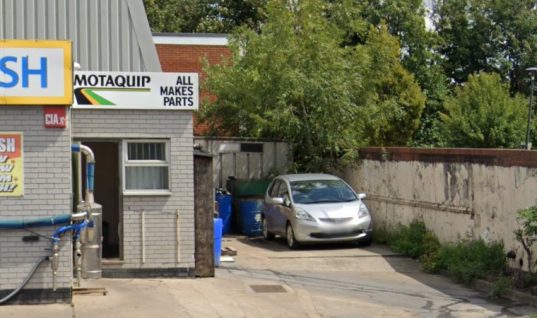The Verification of Lubricant Specifications (VLS) has received complaints against four passenger car engine oils and has opened new investigations, bringing the total number of cases investigated to 79.
Case 176 concerns a 0W-30 passenger car engine and its ability to meet its claim against an OEM specification.
The complainant highlights the product’s ability to meet the NOACK (evaporation) limits required as a particular cause for concern.
Should the product not meet this key performance requirement, it would be misleading the end consumer.
Case 177 concerns a 5W-30 passenger car engine oil and its ability to meet claims against ACEA C2 and ACEA C3, alongside MB 229.51 and MB 229.52.
The complainant alleges that the product fails to meet these specifications in key areas, including oxidation.
On this basis, the product would be misleading end consumers.
Case 178 concerns a 5W-30 passenger car engine oil and the compatibility between OEM specifications and SAE viscosity ratings, along with the product’s own performance claim against its technical specification.
Case 179 concerns a 5W-30 passenger car engine oil and its compatibility between OEM specifications claimed and also against one of the ACEA light-duty engine oil sequences.
All cases are now under investigation by the Technical Review Panel.
Mike Bewsey, Chairman of industry trade body VLS (UK) Ltd, said, “These new cases provide further evidence that misleading marketing claims are still a cause for concern.
“The world of engine oil has become increasingly sophisticated over the past few years.
“Lubricant technology has evolved significantly to meet government requirements for reduced emissions and consumer needs for extended service intervals, efficiency and performance.
“Smaller capacity engines are running at higher power outputs to maximise efficiency and deliver fuel economy alongside the use of exhaust after-treatment devices to reduce emissions.
“The need for compatibility with emission control devices, longer oil drain intervals, taken together with smaller sumps, have created the need for lower viscosity, synthetic or semi-synthetic oils to provide the essential lubrication required in these challenging conditions.”
Using the wrong oil risks accelerated wear to critical engine components, reduced effectiveness of emission control devices and customer complaints that any garage wants to avoid.
Mechanics must be confident that the engine oil they select for a customer’s vehicle is genuinely fit for purpose.
Although end users can continue to have confidence in the performance claims made on the vast majority of lubricant products, in some cases, these claims can be confusing or even misleading.
All of the cases investigated by the independent industry trade body, the Verification of Lubricant Specifications (VLS), over the past five years have concerned performance claims relative to market standards, such as conflicting or unevidenced OEM specifications or market standards such as ACEA engine oil specifications.
Products claiming that they meet certain specifications or are suitable for use in vehicles which might, at best, be unevidenced or, at worst, simply untrue.
“The VLS Marketing Claims Guidance is very clear about why clarity and consistency in lubricant blenders, manufacturers, and marketers’ use of these marketing claims is so important,” Mike Bewsey continues.
“End users must be able to make informed decisions on the correct lubricants for a vehicle and be confident that a lubricant is suitable for use in their application.”
VLS considers there are three types of generic marketing claims, of which two are common:
- Approved. This means that the product name has been registered with the approval authority and a reblend approval was sought and obtained.
- ‘Recommended for use’, ‘Suitable for use’ or ‘Meets the requirements of’, amongst other terms. These terms indicate that the marketer is making an informed, professional judgement based on supporting technical evidence regarding the suitability of a given lubricant to a stated application. These terms can include the following cases:
‐ an approval exists on the formulation being used, but the marketer has decided not to pursue a formal reblend approval for his product name.
‐ an approval is not technically possible, e.g. claims which are self‐certified and there is no body to grant approval (e.g. ACEA sequences).
‐ the specification is technically obsolete or one or more tests are currently unavailable but, on the basis of a technical judgement, e.g. similarity with previously tested materials, the product would fully meet all the requirements of the specification.
‐ the lubricant marketer or technology provider has sufficient, robust and relevant supporting data for the recommended application. This should be on the basis of engine test data against the requirements of the OEM specifications and/or data from substantial field trials where appropriate. - Not suitable for use. In practice, this would normally be indicated simply by the omission to claim one of the above classifications for the product.
In all cases involving marketing claims, it is the responsibility of the product marketer to ensure that they have sufficient data from a technically competent individual or organisation to justify any such claims.
If a case is reported to VLS concerning marketing claims, the Technical Review Panel will check if approvals being claimed can be evidenced by an approval authority, such as an OEM’s website.
Named Parties will be asked to provide documentary evidence that valid and current approvals exist or provide details of the technical assessment that underpins their marketing claims.
This may include asking their Technology Provider to provide the Candidate Data Package underpinning a claim or a letter from their Technology Provider indicating how they support the suitability of the actual formulation being blended by the Named Party against any OEM claims.
VLS will then work with Named Parties to ensure that any unevidenced claims are removed, Technical Data Sheets are updated, and accurate information is presented to end users.
Mike added: “It is understandable that with margins under pressure, lubricant marketers are keen to service the maximum number of applications with the minimum number of products.
“But they must be able to prove their marketing claims so that mechanics can have continued confidence that the products they select really can deliver.
“VLS plays a vital role in ensuring that lubricants are labelled accurately and meet the specifications they claim so that garages can be sure they are fit for purpose.
“This includes working with Trading Standards if required to ensure that robust action is taken and incorrectly labelled products are brought into line.”
If you have any concerns about an engine oil, you can report them to VLS by calling 01442 875922 or emailing [email protected].







